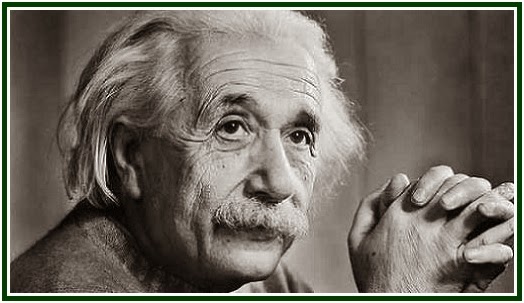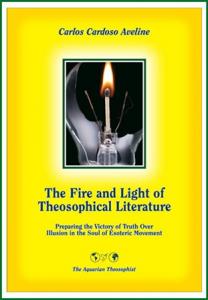
From the Holocaust to the State of Israel
Albert Einstein

Albert Einstein (1879-1955)
000000000000000000000000000000
Reproduced from “The
Aquarian Theosophist”,
November 2012 edition, pp. 13-16.
0000000000000000000000000000000000
An Editorial Note:
Jewish religion, philosophy and culture are closely related to the origin and inner focal point of Western Civilization’s Karma. Therefore to have respect for the Jewish nation is inseparable from having respect for our civilization’s core values. Every people and nation must be equally respected.
The following texts show Albert Einstein’s thoughts in two different moments in the decisive 20th century. The first article, “The Dispersal of European Jewry”, is the transcription of an address by radio for the United Jewish Appeal, broadcast March 22, 1939 in the USA, when the World War II and the Holocaust were yet about to begin.
The second article, “The Jews of Israel”, is an address delivered ten years later, on November 27, 1949, one year and a half after the creation of the State of Israel in 1948. Both texts are reproduced from “Out of My Later Years”, by Albert Einstein, Wings Books, New York, 1956, pp. 254-256; and pp. 274-276.
In the following lines, Einstein frankly describes the feeling and the drama of being a Jew in modern times. He shows the solidarity and the tenacity of the “people of the Book”. He sincerely advocates friendship and mutual help between Arabs and Jews.
(Carlos Cardoso Aveline, in November 2012)
1. The Dispersal of
European Jewry (March 1939)
The history of the persecutions which the Jewish people have had to suffer is almost inconceivably long. Yet the war that is being waged against us in Central Europe today falls into a special category of its own. In the past we were persecuted despite the fact that we were the people of the Bible; today, however, it is just because we are the people of the Book that we are persecuted. The aim is to exterminate not only ourselves but to destroy, together with us, that spirit expressed in the Bible and in Christianity which made possible the rise of civilization in Central and Northern Europe. If this aim is achieved Europe will become a barren waste. For human community life cannot long endure on a basis of crude force, brutality, terror, and hate.
Only understanding for our neighbors, justice in our dealings, and willingness to help our fellow men can give human society permanence and assure security for the individual. Neither intelligence nor inventions nor institutions can serve as substitutes for these most vital parts of education.
Many Jewish communities have been uprooted in the wake of the present upheaval in Europe. Hundreds of thousands of men, woman, and children have been driven from their homes and made to wander in despair over the highways of the world. The tragedy of the Jewish people today is a tragedy which reflects a challenge to the fundamental structure of modern civilization.
One of the most tragic aspects of the oppression of Jews and other groups has been the creation of a refugee class. Many distinguished men in science, art, and literature have been driven from the lands which they enriched with their talents. In a period of economic decline these exiles have within them the possibilities for reviving economic and cultural effort; many of these refugees are highly skilled experts in industry and science. They have a valuable contribution to make to the progress of the world. They are in a position to repay hospitality with new economic development and the opening up of new opportunities of employment for native populations. I am told that in England the admission of refugees was directly responsible for giving jobs to 15,000 unemployed.
As one of the former citizens of Germany who have been fortunate enough to leave that country, I know I can speak for my fellow refugees, both here and in other countries, when I give thanks to the democracies of the world for the splendid manner in which they have received us. We, all of us, owe a debt of gratitude to our new countries, and each and every one of us is doing the utmost to show our gratitude by the quality of our contributions to the economic, social, and cultural work of the countries in which we reside.
It is, however, a source of gravest concern that the ranks of the refugees are being constantly increased. The developments of the past week have added several hundred thousand potential refugees from Czechoslovakia. Again we are confronted with a major tragedy for a Jewish community which had a noble tradition of democracy and communal service.
The power of resistance which has enabled the Jewish people to survive for thousands of years is a direct outgrowth of Jewish adherence to the Biblical doctrines on the relationship among men. In these years of affliction our readiness to help one another is being put to an especially severe test. Each of us must personally face his test, that we may stand it as well as our fathers did before us. We have no other means of self-defense than our solidarity and our knowledge that the cause for which we are suffering is a momentous and sacred cause.
2. The Jews of
Israel (November 1949)
There is no problem of such overwhelming importance to us Jews as consolidating that which has been accomplished in Israel with amazing energy and an unequalled willingness for sacrifice.
May the joy and admiration that fill us when we think of all that this small group of energetic and thoughtful people has achieved give us the strength to accept the great responsibility which the present situation has placed upon us.
When appraising the achievement, however, let us not lose sight of the cause to be served by this achievement: rescue of our endangered brethren, dispersed in many lands, by uniting them in Israel; creation of a community which conforms as closely as possible to the ethical ideals of our people as they have been formed in the course of a long history.
One of these ideals is peace, based on understanding and self-restraint, and not on violence. If we are imbued with this ideal, our joy becomes somewhat mingled with sadness, because our relations with the Arabs are far from this ideal at the present time. It may well be that we would have reached this ideal, had we been permitted to work out, undisturbed by others, our relations with our neighbors, for we want peace and we realize that our future development depends on peace.
It was much less our own fault or that of our neighbors than of the Mandatory Power, that we did not achieve an undivided Palestine in which Jews and Arabs would live as equals, free, in peace. If one nation dominates others nations, as was the case in the British Mandate over Palestine, she can hardly avoid following the notorious device of Divide et Impera. In plain language this means: create discord among the governed people so they will not unite in order to shake off the yoke imposed upon them. Well, the yoke has been removed, but the seed of dissension has borne fruit and may still do harm for some time to come – let us hope not for too long.
The Jews of Palestine did not fight for political independence for its own sake, but they fought to achieve free immigration for the Jews of many countries where their very existence was in danger; free immigration also for all those who were longing for a life among their own. It is no exaggeration to say that they fought to make possible a sacrifice perhaps unique in history.
I do not speak of the loss in lives and property fighting an opponent who was numerically far superior, nor do I mean the exhausting toil which is the pioneer’s lot in a neglected arid country. I am thinking of the additional sacrifice that a population living under such conditions has to make in order to receive, in the course of eighteen months, an influx of immigrants which comprise more than one third of the total Jewish population of the country. In order to realize what this means you have only to visualize a comparable feat of the American Jews. Let us assume there were no laws limiting the immigration into the United States; imagine that the Jews of this country volunteered to receive more than one million Jews from other countries in the course of one year and a half, to take care of them, and to integrate them into the economy of this country. This would be a tremendous achievement but still very far from the achievement of our brethren in Israel. For the United States is a big, fertile country, sparsely populated with a high living standard and a highly developed productive capacity, not to compare with small Jewish Palestine whose inhabitants, even without the additional burden of mass immigration, lead a hard and frugal life, still threatened by enemy attacks. Think of the privations and personal sacrifices which this voluntary act of brotherly love means for the Jews of Israel.
The economic means of the Jewish Community in Israel do not suffice to bring this tremendous enterprise to a successful end. For a hundred thousand out of more than three hundred thousand persons who immigrated to Israel since May 1948 no homes or work could be made available. They had to be concentrated in improvised camps under conditions which are a disgrace to all of us.
It must not happen that this magnificent work breaks down because the Jews of this country will not help sufficiently or quickly enough. Here, to my mind, is a precious gift with which all Jews have been presented: the opportunity to take an active part in this wonderful task.
000
On the role of the esoteric movement in the ethical awakening of mankind during the 21st century, see the book “The Fire and Light of Theosophical Literature”, by Carlos Cardoso Aveline.

Published in 2013 by The Aquarian Theosophist, the volume has 255 pages and can be obtained through Amazon Books.
000